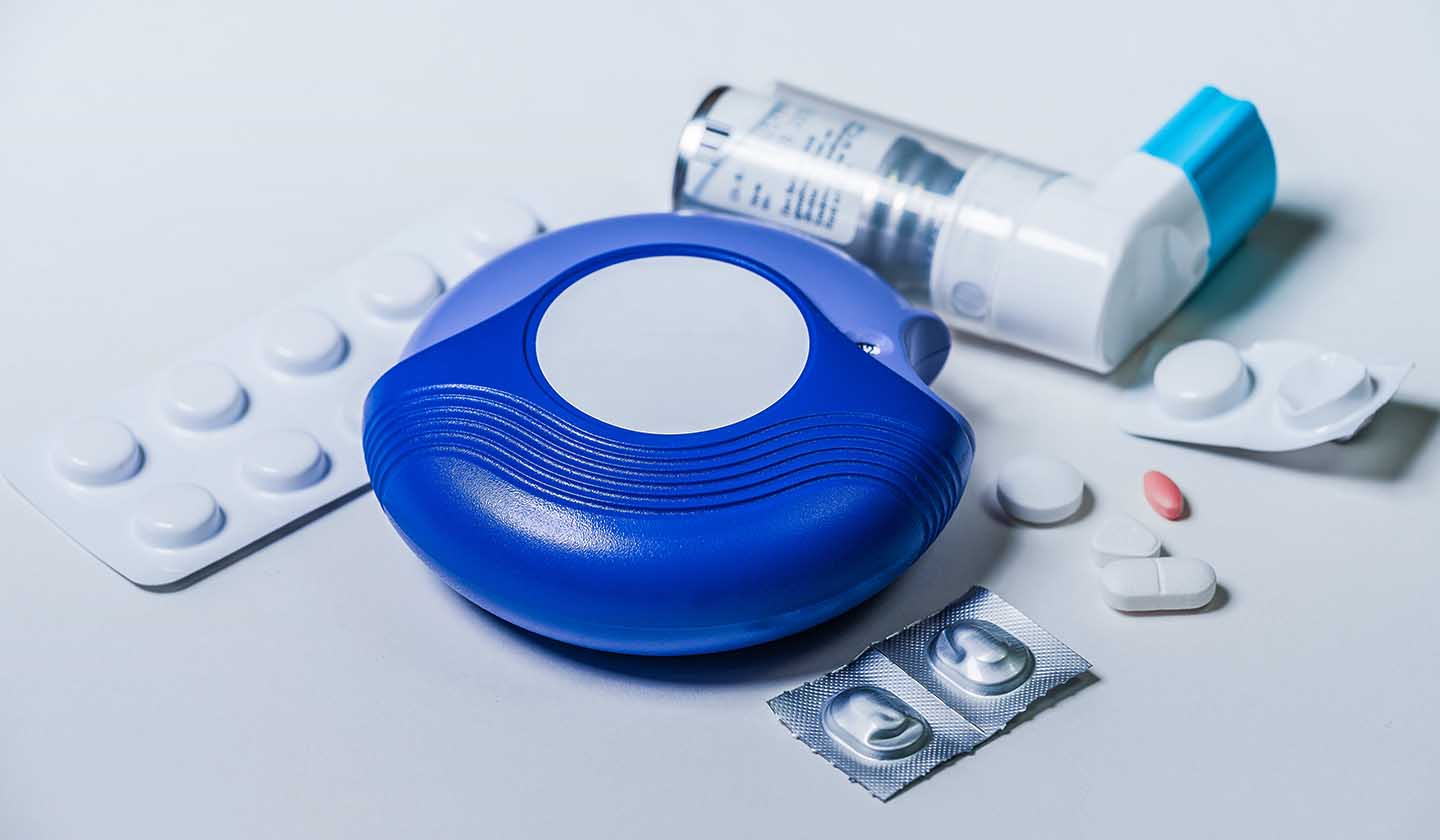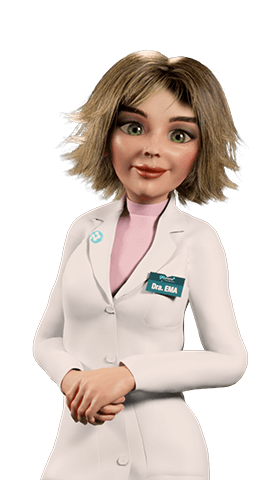Respiratory system
Controlling asthma? Yes we can!

Asthma is a chronic disease of the respiratory system in which the airways narrow, making it hard to breathe. This disease has no cure, but it can be reversed spontaneously or with treatment.
What causes the onset of asthma is still unknown. However genetic, environmental, and nutritional causes are believed to be causing factors.
Treatment is based on inhaled medications containing corticosteroids, which reduce the inflammatory process caused by the disease, and bronchodilators, which promote relaxation of the airway muscles.

Preventive drugs
Devices that contain long-acting bronchodilators are used in combination with corticosteroids. Corticosteroids have many side effects, but due to being inhaled, they act directly on the bronchi, thus requiring lower doses to achieve the desired effect and, consequently, resulting in less side effects.
Preventive medications must be used daily and correctly, to prevent the onset of attacks.
SOS medications
This type of medication is used to quickly treat an asthmatic attack.
Inhalers containing short-acting bronchodilators are used, with the most well-known being salbutamol. These drugs take about 5 minutes to take effect and their action can last for 4 hours.
The recurrent use of this type of SOS medication is a sign that asthma is not controlled and needs intervention, which can include therapy or inhalation technique readjustments.
The correct use of inhalation devices is especially important for therapeutic success. Whenever you have any doubts about their use, talk to a health professional and ask him/her to show you the correct technique.

Identifying symptoms
There are some symptoms that suggest asthma may not be controlled:
-
Shortness of breath
-
Cough (especially at night)
-
Wheezing (whistling noise)
-
Chest tightness
Tips to control your asthma
-
Follow the therapeutic plan strictly
-
Identify errors in the use of inhalation devices
-
Eliminate the sources that can trigger an asthma attack
-
Always carry an SOS inhaler with you
-
Practise physical exercise, but be careful to avoid triggering an attack
-
Prevent viral infections
Asthma and COVID-19
Asthma patients are considered a risk group for COVID-19 infection, since the virus attacks the respiratory tract and can trigger an asthma attack. The fact of being asthmatic does not in itself constitute a risk of contracting the disease. However, the asthma patient must have extra care not to unbalance his/her disease which until that moment was under control. It is therefore essential to follow all the rules regarding social isolation and hygienic etiquette recommended by the Portuguese Directorate General of Health.
Sources
iSaúde
Farmácia Distribuição Magazine
Também lhe poderá interessar
Respiratory system
COPD - When the air doesn't seem to arrive
Respiratory system






